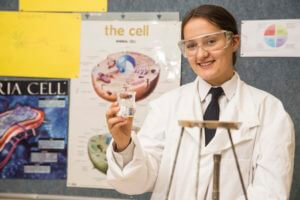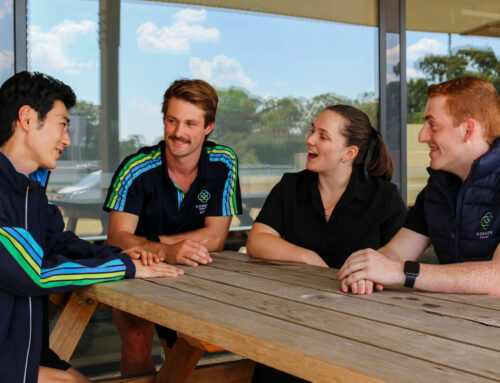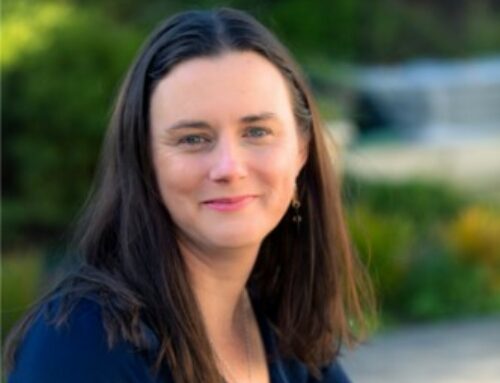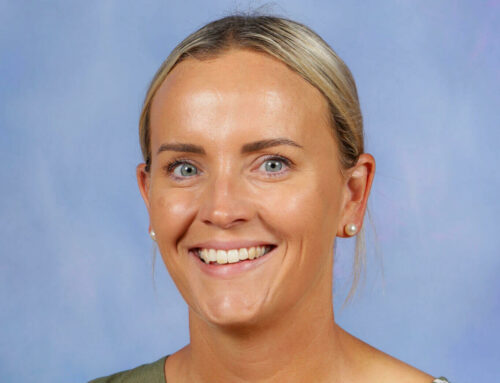Schools are focusing on how technology can be used to make a difference
Why would a 21st-century school, whose philosophy revolves around ‘educating for a sustainable future’, not have an executive role for innovation and design? Cornish College Principal, Nicola Forrest, puts the rhetorical question to prospective families when introducing them to her executive team member Nicole Timbrell, the school’s Deputy Principal – Innovation and Design.
Timbrell answers: “You can’t look in the eyes of families and say you’re preparing their children appropriately, if you don’t value the process of innovation. I like to think of innovation as something we do over and over again, rather than a one-off program, event or piece of infrastructure”.
The College is named after leading local educator Richard Cornish who established the site to create a model for education with its core philosophy revolving around a more sustainable future.
Year 10 Cornish student Gemma Wildermuth was a speaker at Real Time Learning’s online event ‘Future Byte’
“So, when we design our curriculum, we design it around our four interlocking Rings of Sustainability, which I believe to be one of the most innovative features here at Cornish,” says Timbrell.
“These rings include natural, personal, urban/technological and socio-cultural sustainability.
“The purpose of the four rings is to address issues, problems or queries through these four lenses. For example, when we talk about COVID-19 with our students, we encourage them to not only look at the huge personal impact it is having on each of their lives, but also the socio-cultural impact on society and also the natural world.”
Cornish College is partnering with the Future Schools Alliance and Real Time Learning because, as Timbrell explains, they walk with the College on its mission of educating for a sustainable future.
“Future Schools Alliance is a collaboration of forward-thinking schools which are trying to think differently about education,” says Timbrell. “They help us articulate the changes we want to make.”
Real Time Learning, which facilitates partnerships between schools, industry and the tertiary sector, allows Cornish College to break down the wall between industry and the classroom, better preparing students by making the world beyond the classroom seem less daunting or unfamiliar.
Cornish College is a pilot school for Real Time Learning’s ‘Adopt an Engineer’ program, which brings an undergraduate engineering student to its STEM classes for half a day a week.
‘‘Through this program, our students and teachers alike are able to gain first-hand knowledge from someone specialising in the field,” says Timbrell.
Meanwhile, the ‘Internet of Things – Kitchen Garden’, an initiative of Monash University, engages students in industry-based use of automation in agriculture and horticulture, teaching students ‘‘how technology can be used authentically to make a difference for a sustainable future’’.
“By facilitating experiences that introduce our students to the bigger picture, outside of the core curriculum, we are teaching them that you can’t be what you can’t see – opening their eyes to a plethora of opportunities and ways of thinking they may never have imagined.”
This philosophy ties in with the school’s inquiry-based learning model.
“We don’t view students as empty vessels that we need to pour content into,” says Timbrell. “Instead, we try and follow the student’s interests and encourage them to think critically about certain aspects. At the end of the day, we often find this inquiry-based style of learning leads us to ticking off curricula we needed to meet.”
Cornish College is already preparing for a post-pandemic world, with ‘‘future thinking’’ workshops taking place with the Principal and her Executive Leadership Team.
“We’re excited about what lies ahead,” adds Timbrell. ‘‘And I know Cornish will continue to be innovative in educating for a sustainable future.”
‘Innovation in the classroom’ feature, The Age
By Portia Conyers-East




